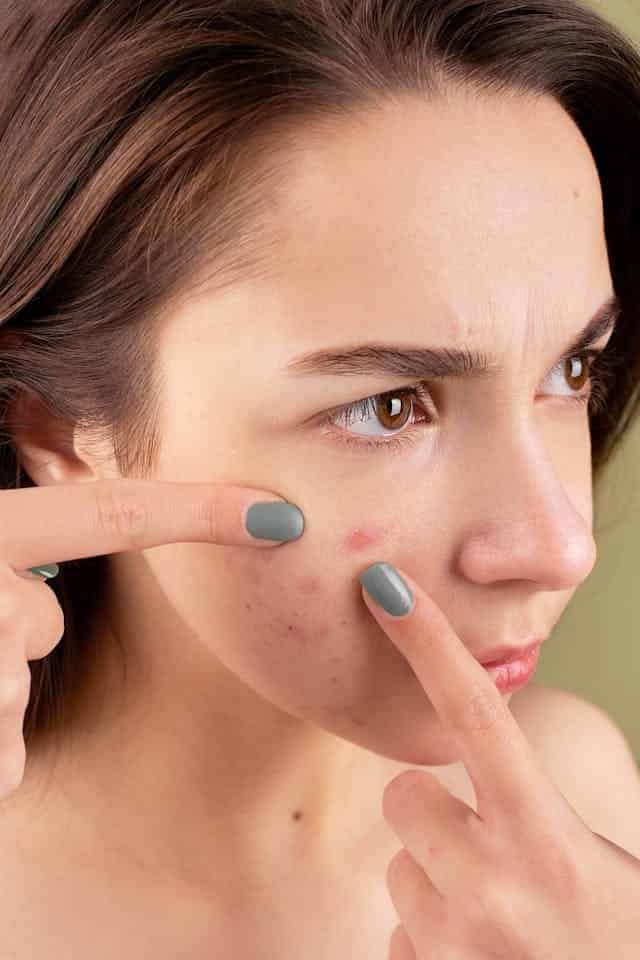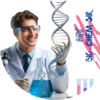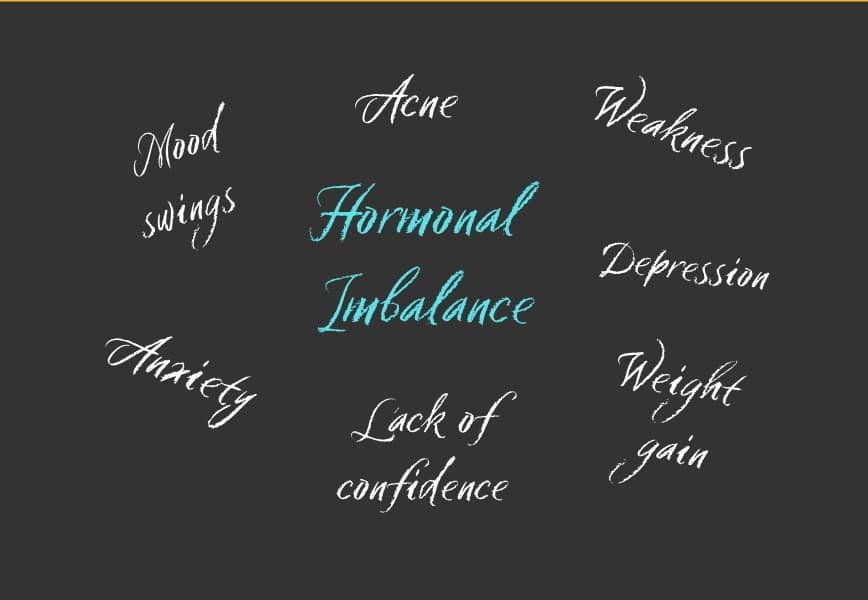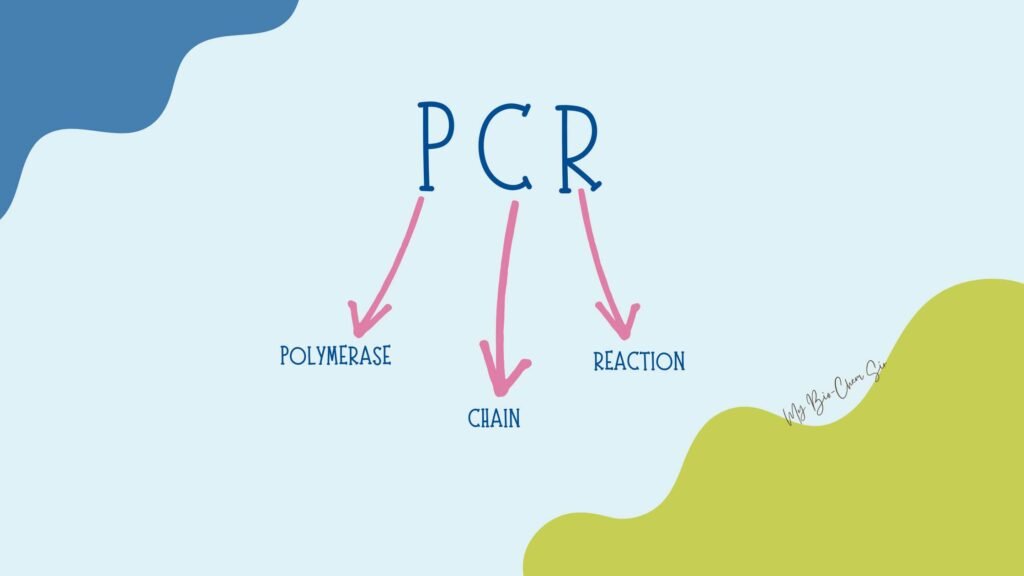A hormone is a chemical messenger in our body, travels through the bloodstream to specific tissues or organs, where they regulate various physiological and behavioral activities. They help maintain balance and ensure that our body works smoothly. However, even a slight imbalance can disrupt this harmony, leading to changes in our physical health, emotional well-being, and everyday routines.
Female

Estrogen Imbalance
High Levels of Estrogen:
Women over the age of 35 have high levels of estrogen in their bodies.
Did you know that an imbalance in estrogen levels can cause more than just mood swings?
High estrogen levels can bring about a variety of physical and emotional symptoms that often go unnoticed or misinterpreted.
Here are some of the effects:
Physical Signs: High estrogen can lead to breast swelling, tenderness, and even pain. Other effects include water retention, weight gain, acne, and white discharge from the nipples.
Aches and Pains: Common symptoms like headaches, breast pain, and lower back pain can signal elevated estrogen levels.
Mood and Sleep Changes: High estrogen doesn’t just affect the body; it impacts mental health too! Memory issues, poor sleep, irritability, and feelings of weakness can often be linked to this hormone.
Cravings and Disinterest: Some people may crave sweet or salty foods or feel disinterested in socializing and work, indicating hormonal imbalances.
Low Levels of Estrogen:
It is normal to have low levels of estrogen during menopause. However, if someone has had a Hysterectomy (a surgical operation to remove a woman’s womb or uterus), chemotherapy, or radiation therapy, their estrogen levels may also decrease.
Estrogen plays a crucial role in keeping the vaginal lining healthy and moist. When estrogen levels drop, the body can go through uncomfortable changes:
Vaginal Health: Low estrogen levels can cause the vaginal lining to become thin and dry, making intercourse painful and uncomfortable. It can weaken the urethral wall, increasing the risk of infections.
Other Symptoms of Low Estrogen: The effects don’t stop there. Low estrogen can lead to night sweats, joint pain, headaches, and migraines. It may also cause dry skin and mental changes like anxiety, irritability, and lethargy.
Progesterone Imbalance

High Levels of Progesterone:
Progesterone is a hormone naturally produced during the menstrual cycle. Certain factors can raise progesterone levels, such as using birth control pills, sedatives, or painkillers.
Here’s how increased progesterone might affect the body:
Menstrual Changes: High progesterone can reduce the amount of menstrual flow, which is often seen in those using birth control pills.
Physical and Emotional Symptoms: High levels of progesterone can cause chest tenderness and swelling, mood swings, and excessive sleepiness.
Impact on Estrogen: When progesterone levels are high, the effectiveness of estrogen can decrease, leading to imbalances that affect overall well-being.
Low Levels of Progesterone:
Progesterone is one of the most important hormones in the female body, serving as both a regulator and a stimulant for many subtle yet important functions.
When progesterone levels drop, it can lead to a range of issues:
Reproductive Health: Low progesterone is often linked to infertility and irregular periods. It can cause menstrual blood clots and breast pain, making menstrual cycles more uncomfortable.
Other Physical Effects: Symptoms include gallbladder issues, vaginal dryness, and low blood sugar levels.
Emotional and Nutritional Impact: Low progesterone can contribute to depression and magnesium deficiency, affecting mood and energy.
Androgen Imbalance

High Levels of Androgen:
One of key functions of androgen is to convert into estrogen when needed, influencing many critical bodily processes, in female body. These hormones help to regulate the reproductive system, bones, muscles, liver, and kidneys, both before, during, and after menopause.
Androgens also impact sexual arousal and mating behaviors.
However, when androgen levels are too high, it can lead to a variety of symptoms:
Reproductive and Skin Changes: High androgen levels can cause infertility, irregular or absent periods, and abnormal hair growth (like facial hair). It can also contribute to hair loss and acne.
Metabolic Effects: High levels can lead to decreased “good” cholesterol (HDL), increased “bad” cholesterol (LDL), and an increase in abdominal fat.
Polycystic ovary syndrome (PCOS):- PCOS is a condition where hormonal imbalances affect the ovaries, causing problems like irregular periods, weight gain, extra hair growth, and acne. One main cause of PCOS is having high levels of a hormone called androgen.
Low Levels of Androgen:
Low androgen levels can cause various complications for women of all ages, especially noticeable in premenstrual and menopausal women.
Health Complications: Tumors may develop in the pituitary gland, and bone loss can occur.
Emotional and Sexual Health: Symptoms of low androgen levels include depression, decreased sexual arousal, and diminished ability to distinguish good and bad judgment.
Physical Symptoms: Vaginal dryness and other physical discomforts may also arise due to androgen deficiency.
Male

Testosterone
Testosterone is an important hormone for men. Made in the testicles, it helps with many physical and reproductive functions.
Physical Traits: Testosterone is responsible for features like muscle growth, facial hair, a deeper voice, and male reproductive organs.
Sexual Health: It supports sexual desire and helps produce sperm.
Normal testosterone levels in men range from 350 to 1230 ng/dL.
As men age, testosterone levels can drop, leading to changes in sexual health and physical traits. Some men turn to hormone replacement therapy, but this can increase risks like prostate cancer and atherosclerosis.
Low Testosterone Symptoms:
Testosterone imbalances usually become noticeable in men as they age. Between 40-50 years of age, the imbalance shows through the following symptoms:
Low Energy and Weakness: Feeling tired after meals, less ability to work, and lethargy.
Other Physical Changes: A decrease in sexual desire, increased sweating, and body aches.
Premature Aging:
Low testosterone can lead to early aging signs, physically and mentally.
Physical Changes: Thinning or graying hair, loss of bone density, reduced skin radiance, and fat accumulation around the hips.
Mental and Sleep Issues: Memory loss and difficulty sleeping.
Emotional Effects of Low Testosterone:

An imbalance in testosterone impacts mood and self-esteem.
Mood Changes: Increased anxiety, nervousness, and irritability.
Loss of Motivation: Confidence drops, depression, and reduced drive.
Decreased Sexual Arousal and Andropause: A testosterone imbalance reduces sexual arousal and may lead to erectile difficulties.
What is Andropause?
Andropause refers to a decline in sexual desire, arousal, and masculine traits due to low testosterone. It’s often compared to menopause in women.



